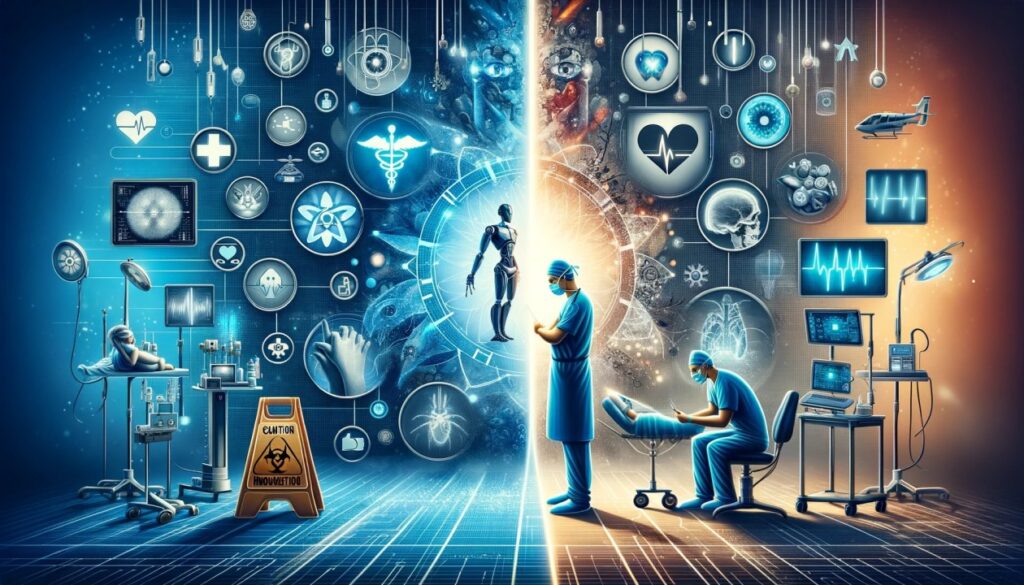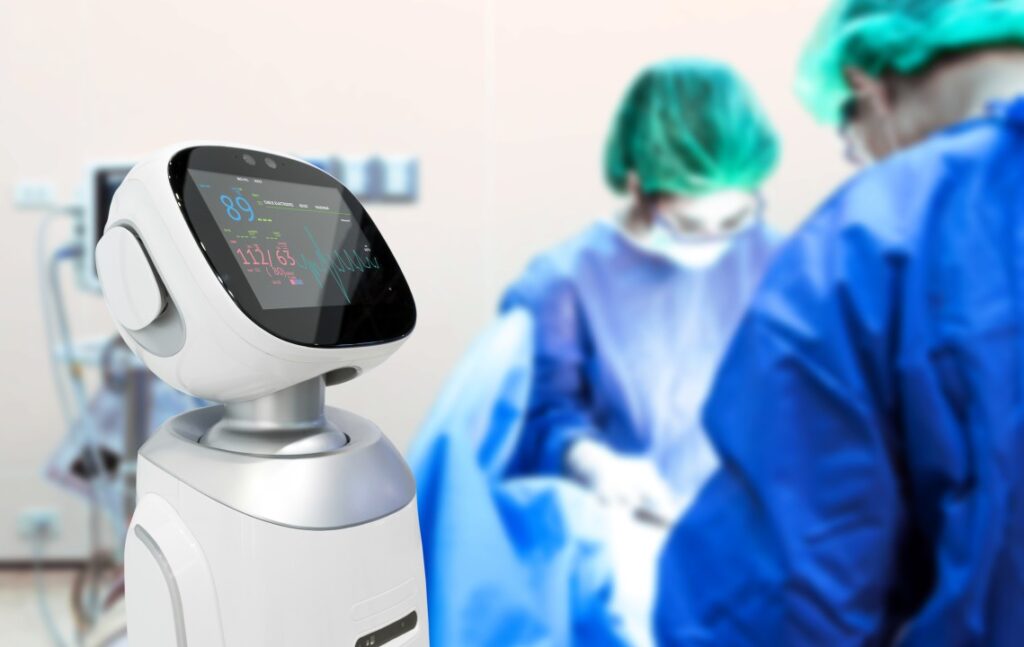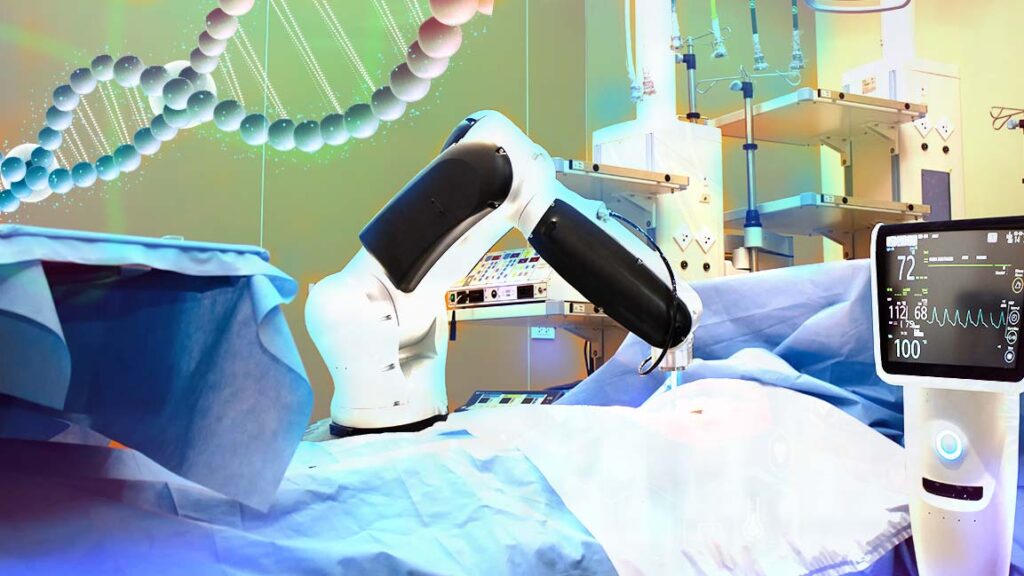Table of Contents
Introduction
Artificial Intelligence (AI)in Medical Innovations is rapidly transforming various industries, and healthcare is no exception. In the United States, AI-driven innovations are reshaping the landscape of medical care, offering new possibilities for diagnosis, treatment, and patient management. This blog explores the top five AI-driven medical innovations in the US, highlighting their impact on healthcare delivery and providing insights into their future potential.

1. AI-Powered Medical Devices
AI-powered medical devices are at the forefront of technological advancements in healthcare. These devices use machine learning algorithms to analyze complex medical data, enhance diagnostic accuracy, and improve patient outcomes.
Case Study: IBM Watson for Oncology
IBM Watson for Oncology is a notable example of an AI-powered medical device that leverages machine learning to assist oncologists in developing personalized cancer treatment plans. By analyzing vast amounts of medical literature, patient records, and clinical trial data, Watson provides evidence-based recommendations to support decision-making. Hospitals and clinics across the US have reported improved patient outcomes and more targeted treatment options thanks to Watson’s capabilities.
How It Works in Medical Innovations
AI-powered medical devices use algorithms to process and interpret medical data, including imaging results, lab tests, and patient history. These devices can detect patterns and anomalies that might be missed by human practitioners, leading to earlier diagnosis and more precise treatment plans.

2. AI-Generated Digital Biomarkers
Digital biomarkers are quantitative data derived from digital sources such as wearables and mobile apps, used to monitor and predict health outcomes. AI plays a crucial role in analyzing these biomarkers to provide actionable insights.
Case Study: Fitbit and Google Health
Fitbit, now part of Google Health, has integrated AI to enhance the analysis of data collected from wearable devices. AI algorithms process data such as heart rate variability, activity levels, and sleep patterns to generate digital biomarkers that help in monitoring chronic conditions like diabetes and cardiovascular diseases. This innovation allows for more personalized health management and timely interventions.
How It Works
AI-generated digital biomarkers involve the collection and analysis of data from various digital sources. Machine learning models identify patterns and correlations in this data, enabling healthcare providers to track patient health in real-time and predict potential issues before they become critical.

3. AI in Clinical Decision Support in Medical Innovations
AI systems designed for clinical decision support (CDS) assist healthcare providers in making informed decisions by analyzing medical data and providing evidence-based recommendations.
Case Study: Aidoc’s Radiology Solutions
Aidoc offers AI-driven radiology solutions that support radiologists in detecting and diagnosing medical conditions from imaging studies. The system uses deep learning algorithms to identify abnormalities such as tumors, hemorrhages, and fractures in radiological images. Aidoc’s technology has been implemented in several leading hospitals in the US, enhancing diagnostic accuracy and reducing the time required for image interpretation.
How It Works
AI-driven CDS systems analyze patient data, including lab results and imaging studies, to provide recommendations for diagnosis and treatment. These systems help clinicians by highlighting potential issues and suggesting evidence-based actions, thereby improving overall patient care.
4. Drug Development Revolutionized by AI
AI is transforming the drug development process by accelerating the discovery of new drugs and optimizing clinical trials. Machine learning algorithms analyze vast datasets to identify potential drug candidates and predict their efficacy and safety.
Case Study: BenevolentAI’s Drug Discovery
BenevolentAI utilizes AI to accelerate drug discovery and development. By analyzing scientific literature, clinical trial data, and patient records, BenevolentAI’s platform identifies potential drug targets and predicts which compounds are most likely to be effective. This approach has the potential to significantly shorten the drug development timeline and reduce costs.
How It Works
AI-driven drug development involves the use of machine learning models to analyze large datasets related to drug candidates, including chemical properties, biological interactions, and patient outcomes. These models help identify promising compounds and predict their effects, streamlining the development process and enhancing the efficiency of clinical trials.

5. AI’s Impact on Value-Based Care in Medical Innovations
Value-based care focuses on improving patient outcomes and reducing healthcare costs by emphasizing the value of care rather than the volume. AI contributes to value-based care by providing insights that enable more efficient and personalized treatment.
Case Study: Tempus and Precision Medicine
Tempus uses AI to advance precision medicine by analyzing clinical and molecular data to provide personalized treatment recommendations. By integrating genomic data with clinical insights, Tempus helps healthcare providers deliver targeted therapies that improve patient outcomes and reduce unnecessary treatments. This approach supports the principles of value-based care by focusing on effective and individualized treatment strategies.
How It Works
AI supports value-based care by analyzing patient data to identify trends and outcomes that inform treatment decisions. Machine learning models can predict which interventions are likely to be most effective, allowing for more personalized and efficient care that aligns with value-based principles.
Conclusion
AI-driven medical innovations are reshaping the landscape of healthcare in the United States, offering new possibilities for diagnosis, treatment, and patient management. From AI-powered medical devices and digital biomarkers to clinical decision support and drug development, these technologies are enhancing the quality of care and transforming the way healthcare is delivered. As AI continues to evolve, its impact on the healthcare sector is likely to grow, leading to even more groundbreaking advancements in the future.